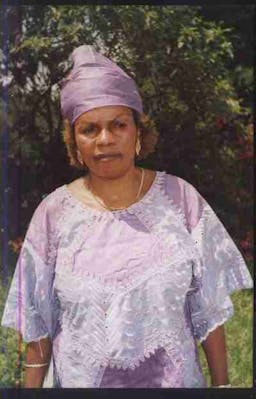DISASTERS AND EMERGENCIES
Feb 26, 2020
Story
Les changements climatiques se font observer sous plusieurs formes dans notre pays, la République Démocratique du Congo. Il est question de chercher des voies et moyens de s'adapter à toutes les contraintes que nous imposent les différentes composantes du climat. Comme illustration, dans la partie Est du Pays, la saison pluvieuse débute au mois de Septembre. Au début de ce mois, il commence à pleuvoir petit à petit. Cependant, depuis début Octobre, il pleut abondamment, chaque jour et sans aucune interruption. Dans certain cas, il pleut du matin au soir, jusqu'au lendemain.
Plusieurs conséquences se font observer dans plusieurs Provinces du Pays. Parmi ces conséquences figurent, les inondations dûes aux remplissage des rivières qui causent énormément plusieurs dégâts tant humains que matériels.
Ici nous faisons allusions à plusieurs cas d'inondations signalées en Province Orientale où 4 cours d'eau se trouvant dans le district de Haut-Uélé s'étaient remplis; parmis eux, la rivière Dungu, Nambia... avaient quittés leurs lits pour se propager sur l'espace habitée par la population. Comme conséquences :
-Plusieurs routes coupées
-Une centaine des maisons détruites, la population sinistrée reste exposée aux intempéries. Les femmes et les enfants sont les plus vulnérables.
-Présence de certains animaux aquatiques tels que : hypopotames, crocodiles, y compris des serpents.
En Territoire de Kalehe, dans la Province du Sud-Kivu, une catastrophe due à une pluie diluvienne s'est posée dans les localités de Bushushu et Rambira où dans la nuit du 8 au 9 Novembre, le débordement de la rivière Chishenyi a occasionné la destruction de plusieurs maisons, la mort de 10 personnes, dont 5 d'entre elles ont été enseveli dans les décombres, plusieurs cas des personnes blessées.
La même situation est signalée dans la Ville de Kinshasa, la Capitale de la République Démocratique du Congo, où dans certaines communes telles que Selembau, Barumbu, Ndjili, plusieurs conséquences dues aux pluies diluviennes sont signalés en ce mois de décembre. Des routes coupées, des maisons inondées par la boues mélangées aux déchets lesquelles donnent l'aspect d'une ville morose dans les quartiers touchés. On signale que les femmes éprouvent de nombreuses difficultés à faire la cuisine, à protéger leurs enfants contre les intempéries.
Dans la Province du Nord-Kivu et Sud-Kivu, des cas des personnes foudroyées sont aussi observés. A Goma plusieurs enfants étaient foudroyés à leur école.
3. AUTRES CONSEQUENCES .:
-Les acteurs agricoles souffrent énormément, et ce dans la mesure où la forte pluviosité entraîne la destruction de leurs cultures et la baisse de la production.
Comme conséquence, cette année il s'observe une hausse de l'insécurité alimentaire.
- Plusieurs cas d'éboulements, d'affaissement et d'érosions dans la ville de Bukavu.
- COMMENT PALLIER CES CATASTROPHES ?
-L'augmentation de la pluviosité constitue un phénomène Naturel irréversible. Il est question de s'adapter à cette nouvelle situation.
-Adapter les formes de construction
-Mettre en place des projets de reboisement et de lutte anti-érosive
- Au Gouvernement congolais, il est recommandé de procéder aux travaux d'assainissement et de curage des sources et rivières et de réaliser des travaux de génie civil.
English translation by community member bridge
Changes in climate can be observed in many forms across our country, the Democratic Republic of the Congo. It is a question of finding the route and means of adapting to all the constraints that are imposed by different components of the climate. For example, in the eastern part of the country, the rainy season begins in the month of September. At the beginning of the month, it begins to rain little by little. Yet by the beginning of October is is raining copiously every day and without a single interruption. In certain cases it rains morning until night, until the next day. There are many consequences in most of the provinces of the country. Among the consequences appearing are floods due to overflowing rivers that cause huge and many damages, both human and material.
Here we allude to many cases of floods in the eastern province where the four sources of water are found in the district of Haut-Uélé are full. Through them, the Dungu river, Nambia…the water has left the riverbed to propagate space inhabited by the population. The following are consquences:
-Many roads blocked
-100 houses destroyed, a sinister population left exposed to more bad weather. Women and children are the most vulnerable.
-Presence of certain aquatic animals such as hyppopatamus, crocodiles, and snakes
In the territory of Kalehe, in the province of South-Kivu, a catastrophe due to a torrential rain occurred in the villages of Bushushu and Rambira where, during the night of the 8-9th of November, the overflowing of the Chishenyi river caused the destruction of many homes, the death of 10 people, 5 of which were buried in debris, and wounded many others.
The same situation was recorded in the city of Kinshasa, the capital of the RDC, where in certain communities such as Selembu, Barumbu, Ndjili, there are many consequences due to the torrential rain in the month of December. Roads blocked, houses buried by mud mixed with garbage that give the city a morose aspect in the affected districts. Women try many times with difficulty to cook, and to protect their children against the bad weather.
In the province of North-Kivu and South-Kivu, cases of people being struck by lightning have also been observed. In Goma, many children have been struck at school.
Other consequences:
-Agricultural actors suffer enormously and the strong rain is in the process of destroying their cultures and the base of production. In consequence, this year we see an increase in food insecurity.
-Many cases of collapse, subsidence, and erosion in the city of Bukavu.
How to alleviate the catastrophes:
-Increase in precipitation constitutes an irreversible natural phenomenon. It is a question of adapting to the new situation.
-Adapt forms of construction
-Put in place reforestation projects and fight erosion.
-To the Congolese government, it is recommended you proceed on clean-up work and dredge of river sources and carry out civil engineering work.




